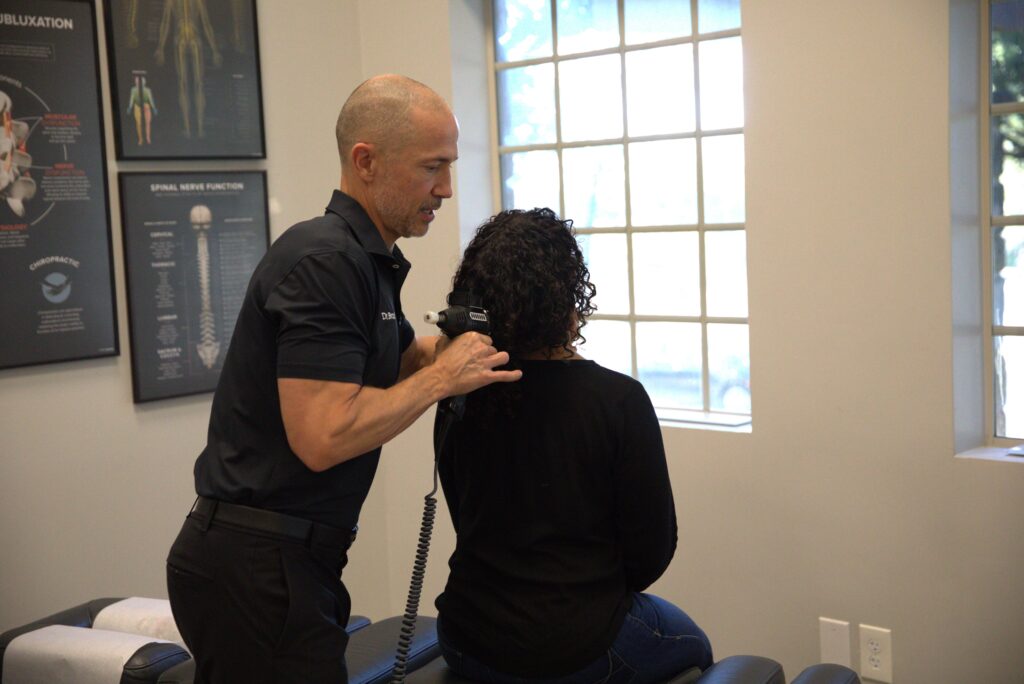Back pain is a widespread issue that affects people of all ages and backgrounds. It can range from mild discomfort to debilitating pain, impacting one’s daily life and overall well-being. According to recent statistics, nearly 80% of adults experience back pain at some point in their lives. With its prevalence, it’s crucial to recognize the significance of timely consultation with a back pain specialist, especially in Austin, TX, where experts in the field can provide specialized care and relief.
The Crucial Role of a Back Pain Specialist in Austin, TX
Experiencing back pain is unfortunately commonplace, with a staggering 80% of adults facing it at various stages of their lives. With such a widespread issue, it becomes imperative to emphasize the critical role that back pain specialists play, especially in Austin, TX, where one can find dedicated experts equipped to offer relief and specialized care.
Why Timely Consultation with a Back Pain Specialist is Essential
Back pain’s origins are manifold, ranging from simple muscle strains to more complex issues like herniated discs and even other underlying health conditions. While some might find relief through rest and home remedies, many need the expertise of a specialist. Procrastinating or neglecting to see a back pain specialist, particularly in Austin, TX, can escalate the pain, limiting movement and deteriorating one’s quality of life.
Demystifying Back Pain
Categories of Back Pain
- Acute Back Pain: A sharp and sudden discomfort, typically stemming from injuries or accidents, lasting from a few days to several weeks.
- Chronic Back Pain: Persisting for over three months, this type of pain can either be ongoing or intermittent, often rooted in conditions like arthritis or herniated discs.
- Neuropathic Pain: This arises due to damaged or malfunctioning spinal nerves, leading to sensations of burning, tingling, or shooting pain.
Common Triggers for Back Pain
- Muscle Strains: Often a result of overexertion or incorrect lifting.
- Herniated Discs: Caused when the soft cushions between spinal bones bulge or rupture, pressing against nerves.
- Spinal Stenosis: A condition where the spinal canal narrows, exerting pressure on the spinal cord or its nerves.
- Arthritis: Various forms, especially osteoarthritis, can affect the spine, inducing chronic pain.
- Traumas or Injuries: Accidental falls or mishaps can lead to acute or prolonged back pain.
Indicators of Back Pain
It’s essential to be aware of back pain symptoms to judge its severity. Notable symptoms comprise:
- Pain sensations, whether dull aches, sharp stabs, or shooting discomfort.
- Stiffness making bending or sitting challenging.
- Numbness or the sensation of pins and needles.
- Weakened back or leg muscles.
- Radiating pain, often indicative of nerve compression, that travels from the back to limbs.
In conclusion, anyone experiencing back pain symptoms should not delay seeking help. With the expertise of back pain specialists in Austin, TX, relief is not just possible, but highly probable.
When to Seek Professional Help
When Self-Care Isn’t Enough
While minor back pain can often be managed with rest, over-the-counter pain relievers, and gentle exercises, there are instances where self-care falls short. It’s essential to recognize when your condition requires professional attention. Consider these scenarios:
Persistent Pain: If your back pain persists beyond a few weeks, despite self-care efforts, it may be an indication of an underlying issue.
Severe Pain: Intense, unrelenting pain, especially if it radiates down your legs or causes numbness, warrants immediate evaluation.
Limited Mobility: Difficulty in performing daily activities, such as walking or bending, due to back pain, is cause for concern.
Red Flags for Specialist Consultation
Certain “red flags” should prompt you to consult a back pain specialist in Austin, TX:
Nerve Symptoms: If you experience weakness, numbness, or tingling in your legs or arms, it could signify nerve compression and requires specialized evaluation.
Night Pain: Pain that worsens at night or prevents you from sleeping may indicate a more serious issue.
Trauma: If your back pain resulted from a traumatic incident, such as a car accident or a fall from a height, it’s essential to rule out spinal injuries.
Fever and Infection: The combination of back pain and fever could be a sign of wavering immunity, an infection, or an abscess around the spine.
Benefits of Early Intervention
Seeking the expertise of a back pain specialist early in your condition can offer several advantages:
Accurate Diagnosis: Specialists are trained to pinpoint the exact cause of your pain, ensuring you receive the most appropriate treatment.
Effective Pain Management: They can provide targeted treatments and therapies to alleviate pain, allowing you to regain function and comfort.
Preventing Progression: Timely intervention can prevent your condition from worsening, potentially avoiding the need for invasive procedures down the line.
The Role of a Back Pain Specialist
Differentiating Between General Practitioners and Specialists
While your primary care physician can address many health concerns, a back pain specialist offers focused expertise in diagnosing and treating spinal conditions. Understanding the distinction is crucial:
General Practitioners: These doctors provide general healthcare and may offer initial assessments and treatments for back pain. However, they may refer you to a specialist for more complex cases.
Back Pain Specialists: These professionals have extensive training and experience in spinal conditions. They are adept at diagnosing the specific cause of your pain and tailoring treatments accordingly.
Expertise and Qualifications
Back pain specialists typically hold various qualifications, such as:
Orthopedic Surgeons: These doctors specialize in musculoskeletal issues and may perform surgical procedures for severe back conditions.
Neurosurgeons: They focus on the nervous system and can address complex spinal problems that affect nerves.
Physical Therapists: PTs offer non-invasive treatments, including exercises and manual therapies, to alleviate back pain and improve mobility.
How Specialists Diagnose and Treat Back Pain
Back pain specialists employ a range of diagnostic tools and treatment modalities to provide comprehensive care:
Imaging: Specialists may use X-rays, MRIs, or CT scans to visualize the spine and identify structural issues.
Physical Examination: A thorough physical assessment helps specialists pinpoint areas of tenderness, weakness, or restricted movement.
Treatment Options: Depending on the diagnosis, specialists may recommend non-surgical approaches like physical therapy, medication, injections, or, in severe cases, surgical procedures.
As you continue reading, we’ll delve deeper into the various types of back pain specialists available in Austin, TX, and how they can address your specific back pain concerns.
Preventing Back Pain Recurrence
While receiving treatment from a back pain specialist in Austin, TX, is essential for immediate relief, it’s equally important to focus on preventing future episodes of back pain. Here are strategies and practices to help you maintain a healthy back and reduce the risk of recurrence:
Lifestyle Modifications to Prevent Future Episodes
Maintain a Healthy Weight: Excess weight places additional stress on the spine. By maintaining a healthy weight through diet and exercise, you can reduce the strain on your back.
Stay Active: Regular physical activity, such as walking, swimming, or low-impact exercises, helps strengthen the muscles that support your spine and promote flexibility.
Practice Good Posture: Be mindful of your posture while sitting, standing, and lifting. Avoid slouching and use ergonomic chairs and equipment if necessary.
Lift Properly: When lifting heavy objects, bend at the knees, not at the waist, and use your legs to lift, rather than your back.
Exercises and Ergonomics for a Healthy Back
Core Strengthening Exercises: Engage in exercises that target your core muscles, such as planks and bridges, to support your spine.
Stretching: Regular stretching exercises can improve flexibility and reduce muscle tension, decreasing the risk of back pain.
Proper Ergonomics: Whether at work or home, ensure that your workspace is ergonomically designed to minimize strain on your back and neck.
Use Supportive Mattresses and Pillows: Invest in a mattress and pillows that provide adequate support for your spine while sleeping.
Regular Follow-Ups and Monitoring
Scheduled Check-Ins: Continue to visit your back pain specialist for scheduled follow-up appointments. These visits allow your specialist to monitor your progress and make necessary adjustments to your treatment plan.
Open Communication: Maintain open and honest communication with your specialist. Discuss any new symptoms, concerns, or changes in your condition promptly.
Reassess and Adjust: As you progress in your recovery, your specialist may recommend changes to your exercise routines, medication dosages, or other aspects of your treatment plan. Some specialists also cryotherapy for inflammation-related back pain.
By implementing these preventive measures and maintaining a proactive approach to your spinal health, you can reduce the likelihood of future back pain episodes and enjoy a higher quality of life. In the final section of this article, we’ll summarize key takeaways and encourage you to prioritize your back health with the guidance of a qualified back pain specialist in Austin, TX.





